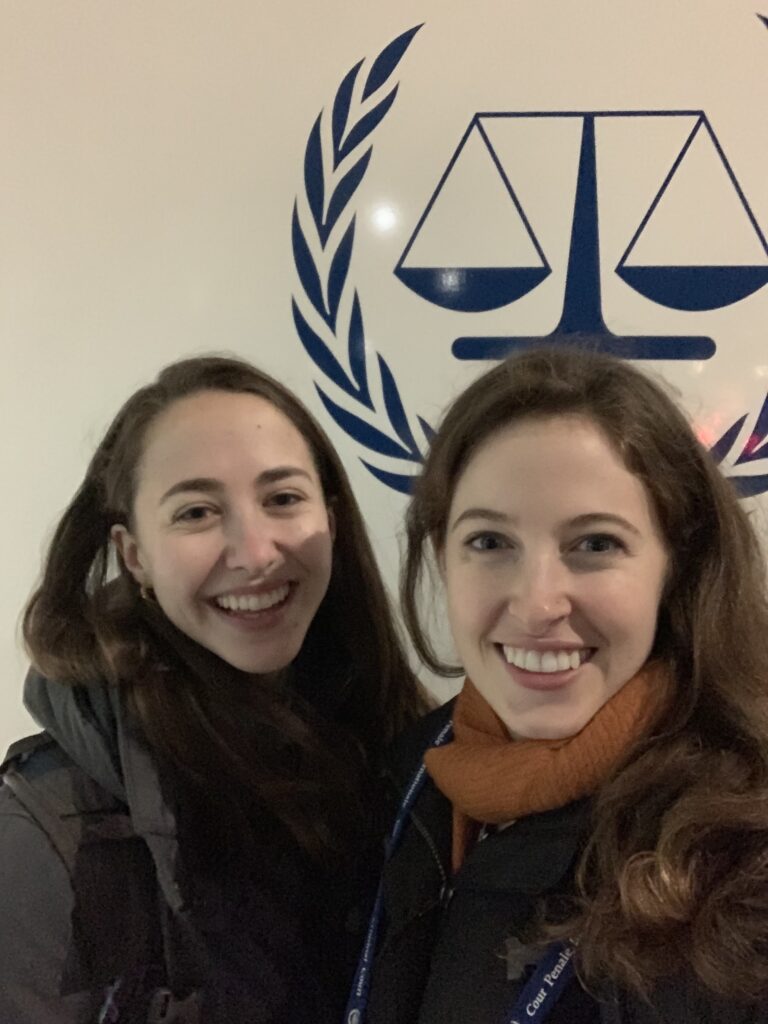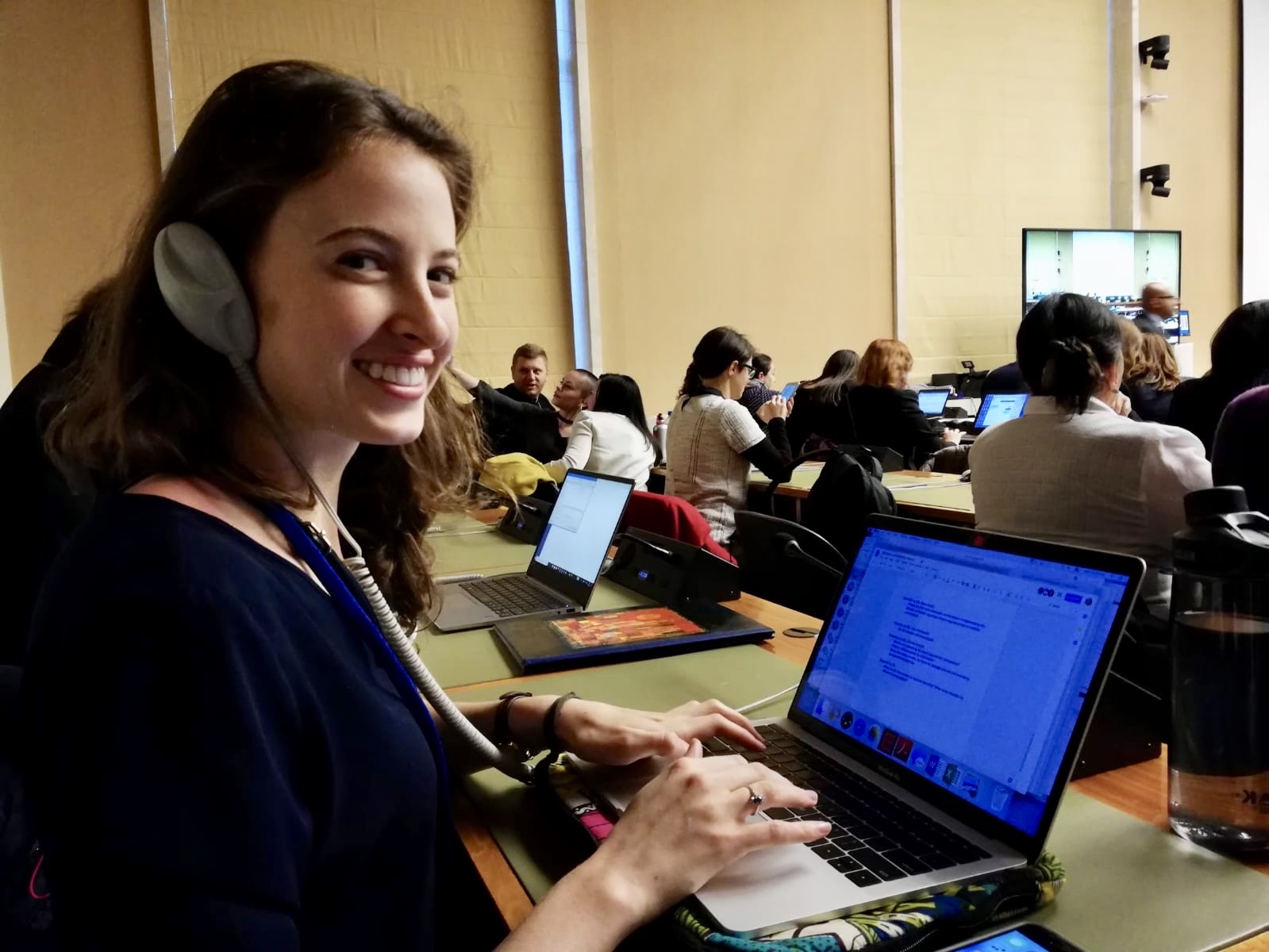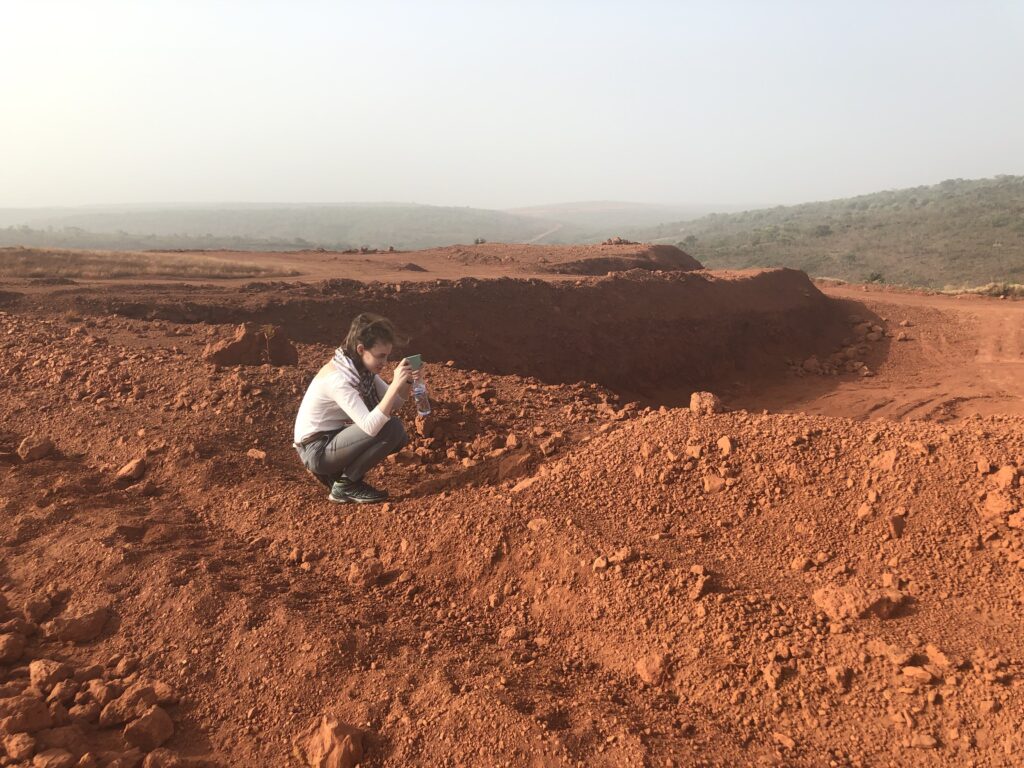When she was in the seventh grade, Samantha Gogol Lint, J.D. ’20, took a class that changed her life. An elective in constitutional law set Lint on the path to becoming an attorney. Now, three years after her graduation from Harvard Law School, Lint is a part of a team building, and winning, some of the most creative and complicated human rights lawsuits in the United States.
As a Legal Fellow at the Center for Justice and Accountability (CJA), Lint is using U.S. human rights laws to hold perpetrators accountable while elevating the voices of survivors and plaintiffs who have nowhere else to turn. She recently helped to secure a $15.5 million verdict against the mayor of a small Haitian town who ordered his men to murder one man and torture two others.
But long before she started working on the front lines of human rights litigation, Lint found her footing in human rights advocacy through Harvard Law School’s International Human Rights Clinic and its associated student practice organization, HLS Advocates.
Finding an Interest in the Law
Lint’s journey to law school began in middle school when she happened to take a class on constitutional law. She learned about First Amendment principles and Supreme Court cases like Tinker v. Des Moines, which helped define students’ rights to free speech in public schools.
“I just loved how what I was learning could be applied to real-world issues,” she recalled. Lint also credits her parents, who were not lawyers or human rights advocates, for teaching her to become an active part of the solution when their community faced a problem – from helping neighbors with home repairs to taking in children as a foster family.
“I grew up in a family of doers. It taught me that individuals can make an impact, and to be attuned to the struggles of others and injustice,” Lint said.
That spark for the law stayed with Lint in high school and college where she honed an interest in international affairs and human rights. She spent her summers in college interning with health organizations in Madagascar and Rwanda, and at the National Women’s Law Center in Washington DC. “I felt torn between global human rights issues and women’s rights and U.S. law. I started to think about human rights law as a tool for engaging on and intersecting these issues.”
After college, Lint supported reproductive, maternal, and child health projects as a contractor with USAID, supporting projects in Kenya, Nepal, and Afghanistan. While working in development, Lint saw how even the best-intentioned projects faced barriers to implementation that overlapped with legal issues, from armed conflict to funding restrictions. These experiences confirmed that she could use the law to make a bigger impact.

Embracing the Harvard Human Rights Community
When she left the development world and arrived at HLS, Lint quickly embraced its human rights community. She joined Advocates for Human Rights, a student practice organization that partners directly with human rights groups and allows students to gain first-hand experience, even as 1Ls.
Lint stayed deeply involved with Advocates as a 2L, serving as a project leader. Her team drafted memos, which subsequently became a report with Parliamentarians for Global Action, on how to expand the International Criminal Court’s jurisdiction to, among other things, address environmental crimes, human trafficking, and corporate liability. Lint and her project co-leader Emma Broches, J.D. ’20, spent January-term in The Hague conducting research at the Court and with civil society organizations. As 3Ls, she and Broches were elected to lead the Advocates Board as Co-Presidents.
“Advocates provides students with practical experience in human rights, collaborating with different organizations on a range of issues. I’ve seen how that hands-on educational experience is so useful, now that I’m out of school and have my in-school experiences as a foundation,” Lint said.
As a student in the International Human Rights Clinic, Lint helped draft a submission to a U.N. committee on women’s equality in Mauritius and investigated the environmental impact of bauxite mining in Guinea. While her team was working in Guinea during spring break, the government evicted thousands of people and razed their homes in the country’s capital, Conakry. Lint and the Clinic team, led by Clinical Instructor Jim Wormington, a senior researcher at Human Rights Watch, quickly pivoted to document the evictions.
“We ended up doing a very intense day of interviews with community members who had been impacted,” Lint said. “It was like ‘Tobolton’” – the Clinic’s intensive day-long interview simulation – “in action.”
Through her projects, trips, papers, research, deadlines, and classes, Lint found something stable and reassuring: a community. “One of the best parts was just having an awesome community with the human rights folks. I loved law school because I had a great circle of people who kept opting into the same activities – all these people with whom I had a Venn diagram of intersecting interests. So I built really great friendships and mentorships through that,” she said.


Building Human Rights Cases
After graduation, Lint clerked for two years, first with the Massachusetts Supreme Judicial Court, the highest court in the state, and then for a federal judge in Maryland. She dove into research and learned about new areas of law – everything from the Fourth Amendment to property law and complex contract disputes – and the nitty gritty of the litigation process.
Last year, Lint applied what she had learned at HLS and while clerking and returned her focus to human rights. At CJA, she recently helped the team win a Torture Victim Protection Act case against Jean Morose Viliena, the former mayor of a small town in Haiti. During a six-day trial, victims, family members, eyewitnesses, and experts explained to a Boston jury how Viliena had ordered the killing of Eclesiaste Boniface, and the torture and attempted killing of Juders Ysemé and Nissage Martyr. The case was a major victory for the plaintiffs who sought justice in Haiti for over 15 years without success.
Lint felt optimistic heading into the trial; she believed that the plaintiffs had a strong case. But the nerves kicked in once the jury left to deliberate. “There are 12 people and you’ve kind of put it all out there, but now you have no more control,” she said.
Then, after two nail-biting days, Lint heard the verdict holding the defendant liable, and all she felt was quiet and relief.
“It was such a heavy moment, in a way, after all this effort, after all the loss and pain that had occurred to get to that point, it wasn’t just a victory. I was thinking about the cost to getting that moment for our clients and their families and for our original client, Nissage Martyr, who died shortly after the case was filed,” Lint said.
According to Lint, for the plaintiffs the verdict sent a message of accountability. “Something that our clients spoke about was this idea that if you do something wrong, you can’t just get away with it forever. You know, this sense of something that we all would hope for – that if something terrible happened to us or to our family members, that the person responsible would not just get to walk off from that.”
Lint began her career serving others in development work, found a human rights community HLS, and is already making an impact early in her legal career. Throughout it all, she’s kept the lessons of her upbringing in mind: pay attention to others, do the right thing, make a difference however you can. Those lessons will continue to guide Lint as she looks to the future, and the next chance to use law to advance human rights.
Paras Shah (@pshah518) is a Postgraduate Fellow at Just Security and a Research Scholar at NYU School of Law. He is a graduate of the University of California, Berkeley and Harvard Law School where he spent two years in the International Human Rights Clinic and served as an Executive Article Editor for the Harvard Human Rights Journal.